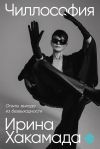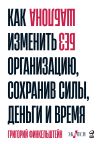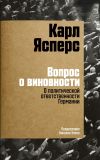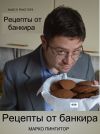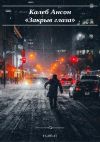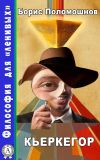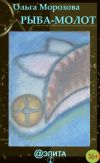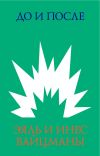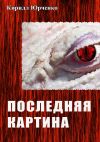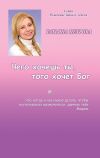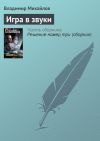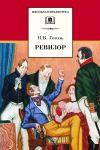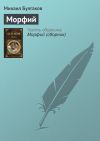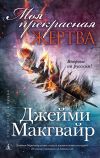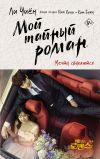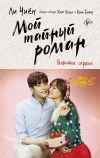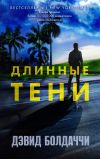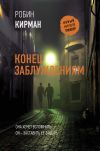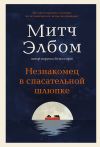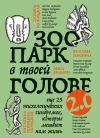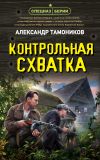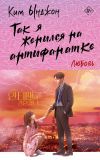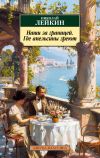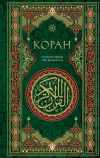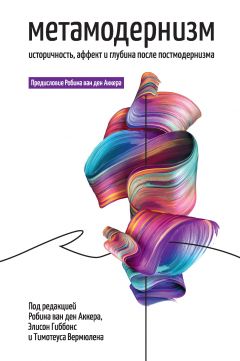
Автор книги: Робин ван ден Аккер
Жанр: Философия, Наука и Образование
Возрастные ограничения: +16
сообщить о неприемлемом содержимом
Текущая страница: 24 (всего у книги 26 страниц)
СТРОФА
В моем понимании существует только один вариант: воспринимать письмо достаточно серьезно, рискуя, что оно подорвет мое намерение писать об искусстве. Это урок Барта – и урок того, как он работал в последние годы своей жизни. Моя книга «Что такое фотография» (Elkins, 2011) представляет собой не историю, не критику, не теорию, а нечто совсем другое: я считаю ее чем-то вроде мемуаров. В ней я предпринял попытку показать, что бы произошло, если бы письму об искусстве предоставили свободу, на которую претендовали все, начиная с Барта. В результате в труде под названием «Что такое фотография», может оказаться еще меньше пользы, чем в «Концепции не-фотографии» (Laruelle, 2011) Франсуа Ларюэля – «не-философской» книге о «не-фотографии».
Однажды я был на конференции в Великобритании, и в конце, во время заключительной речи, один из ее организаторов риторически сказал: «Знаете, я лишь хотел бы отметить тот факт, что в последние три дня мы все упоминали „Camera Lucida“». Это действительно делали почти все, за исключением одного-единственного человека. «Я заинтересовался почему, – продолжал он. – Причина этого, думаю, заключается в том, что книга такая хорошая». Для меня это стало отправной точкой. Мне показалось слишком неадекватным говорить что-то подобное академику. Вам действительно захотелось бы определить, что имеется в виду под словом хорошая, а также что, на ваш взгляд, это слово должно делать, если использовать его в этом ключе. Чем дольше я на все это смотрел, тем больше до меня доходило, что «Camera Lucida» трактуют с двух совершенно противоположных сторон. Во-первых, ее исследуют на предмет наличия теорий, что является нормативным способом ее трактовки в академических кругах. Майкл Фрид (Fried, 2008), например, обратился к 20-му разделу книги и взял из него одно предложение. Ему мимоходом следовало сказать пару фраз о том, какой замечательный это труд, но он даже не подумал сделать ничего подобного. Его интересовало только это предложение, в той или иной степени служившее доказательством его собственных теорий. Это крайний, хотя и типичный подход к прочтению труда Барта. «Camera Lucida» также считают экспериментом в письме – перегруженными деталями джунглями французской письменности, таящей в себе те или иные теории, – и именно это, на мой взгляд, имел в виду докладчик на конференции в Великобритании.
Живучесть «Camera Lucida» можно объяснить тем обстоятельством, что ее не читают в синтетической манере. К ней относятся либо как к экспериментальным мемуарам, либо как к работе, изначально включающей в себя некую теорию. Бывает и так, что сначала ее трактуют в первом ключе, потом во втором. Так, например, поступает Джеффри Бэтчен в своей работе «Нулевая степень фотографии» (Batchen, 2011), представляющей собой антологию на тему «Camera Lucida». Во вступлении к этой работе он перечисляет все термины литературной критики, которые ему нравятся у позднего Барта, а затем в качестве собственного вклада предлагает свои, диаметрально противоположные. Он утверждает, что «Camera Lucida» можно считать историей фотографии, потому что в ней содержится как минимум один снимок из каждой декады истории фотографии. Иными словами, эта книга необъяснимым образом превращается в предмет, который можно использовать в историографических либо позитивистских целях.
В работе «Что такое фотография» я попытался отнестись к письму с той же серьезностью, с которой к нему относился Барт, чтобы этот процесс увлек меня в направлении, способном подорвать мои собственные теории, и тогда работа перестала бы быть теоретической. Не мне судить, актуализировала ли моя книга те или иные теории или подорвала мои собственные, но у меня такое ощущение, что в известной степени имело место и то и другое. У меня, разумеется, есть собственные теории. Однако эта книга, как теория, ведет себя скверно. И еще хуже – как история. При этом в действительности не представляет собой критику. Таким образом, она является не чем иным, как экспериментом письма на тему искусства. В то же время она не выполняет собственного обещания позволить тексту вести себя в достаточной степени странно, как это может показаться, даже если это значит, что ее темой является уже не фотография. В конечном счете в качестве предмета ее рассмотрения все же выступает фотография в аналитических, критических и исторических концептуальных фреймах.
Как следствие, я принял решение: за исключением отдельных, подобных этому эссе, равно как и лекций, я отказываюсь писать на темы критики, теории и истории искусства. Вместо этого я просто пишу. Занимаюсь этим вот уже два года и собираюсь продолжать в том же духе еще четыре, прежде чем попытаюсь опубликовать написанное. Перейти от комфорта аккуратно упакованного концептуального фона дисциплин к зыбкой территории письма в целом – это огромный прыжок. Но если бы я не попытался его совершить, то мне пришлось бы мошенничать по отношению к концептуальным и теоретическим интересам, воодушевляющим мою работу (это пункт A), выступать с позиции провинциала по отношению к современному письму (это пункт B) и втискивать себя в узкие рамки интересов, накладываемых дисциплиной, которой по стечению обстоятельств я зарабатываю себе на жизнь (это пункт C).
Библиография
Бадью А. 2006. Этика: очерк о сознании зла. СПб.: Machina.
Барт Р. 1989. Смерть автора // Барт Р. Избранные работы: Семиотика. Поэтика. М.: Прогресс.
Барт Р. 2011. Camera lucida. Комментарий к фотографии. М.: Ад Маргинем Пресс.
Бегбедер Ф. 2006. Windows on the World. М.: Иностранка, Азбука-Аттикус.
Бейкер Н. 2006. Бельэтаж. М.: Эксмо.
Блох Э. 1997. Тюбингенское введение в философию. Екатеринбург: Издательство Уральского университета.
Болтански Л., Кьяпелло Э. 2011. Новый дух капитализма. М.: НЛО.
Бодрийяр Ж. 2000. Символический обмен и смерть. М.: Добросвет.
Бодрийяр Ж. 2016. Дух терроризма // Бодрийяр Ж. Дух терроризма. Войны в Заливе не было. М.: РИПОЛ классик.
Буррио Н. 2016. Реляционная эстетика // Буррио Н. Реляционная эстетика. Постпродукция. М.: Ад Маргинем Пресс.
Вермюлен Т., ван ден Аккер Р. 2015. Заметки о метамодернизме // http://metamodernizm.ru/notes-on-metamodernism/
Витгенштейн Л. 1989. Лекция об этике // Историко-философский ежегодник 1989 / Под ред. Н.В. Мотрошиловой. М.: Наука.
Витгенштейн Л. 1994. Логико-философский трактат // Витгенштейн Л. Философские работы. Ч. I. М.: Гнозис. С. 73.
Витгенштейн Л. 2017. Логико-философский трактат. М: Канон + РООИ «Реабилитация».
Гегель Г.В.Ф. 1977. Энциклопедия философских наук: В 3-х тт. М.: Мысль, Т. 3.
Гегель Г.В.Ф. 2000. Феноменология духа. М.: «Наука».
Гор А. 2007. Неудобная правда. Глобальное потепление. Как остановить планетарную катастрофу. М.: Амфора.
Гофман И. 2004. Анализ фреймов. Эссе об организации повседневного опыта. М.: Институт социологии РАН – Институт Фонда «Общественное мнение».
Данилевский М. 2019. Дом листьев. Екатеринбург: Гонзо.
Делез Ж. 2011. Фрэнсис Бэкон. Логика ощущения. М.: Machina.
Делез Ж., Гваттари Ф. 2007. Анти-Эдип: Капитализм и шизофрения. Екатеринбург: У-Фактория; Астрель.
Делез Ж., Гваттари Ф. 2010. Тысяча плато: Капитализм и шизофрения. Екатеринбург – М.: У-Фактория; Астрель.
Деррида Ж. 2006. Призраки Маркса. Государство долга, работа скорби и новый интернационал. М.: Logos-altera, издательство «Ecce homo».
Деррида Ж. 2012. Подпись Событие Контекст // Деррида Ж. Поля философии М.: Академический Проект.
Джеймисон Ф. 2014. Постмодернизм и общество потребления // Джеймисон Ф. Марксизм и интерпретация культуры. М. – Екатеринбург: Кабинетный ученый.
Джеймисон Ф. 2019. Постмодернизм, или Культурная логика позднего капитализма. М.: Издательство Института Гайдара.
Евгенидис Д. 2012. А порою очень грустны. М.: Астрель, Corpus.
Жижек С. 2002. Добро пожаловать в пустыню Реального. М.: Прагматика культуры.
Жижек С. 2011. Искусство смешного возвышенного. О фильме Дэвида Линча «Шоссе в никуда». М.: Европа.
Зебальд В.Г.М. 2019. Кольца Сатурна. Английское паломничество. М.: Новое издательство.
Иглтон Т. 2010. Теория литературы: введение. М.: Издательский дом «Территория будущего».
Краус К. 2019. I love Dick. М.: No Kidding Press.
Лакан Ж. 1999. Семинары. Книга 2. «Я» в теории Фрейда и в технике психоанализа. М.: Гнозис, Логос.
Лернер Б. 2015. 22:04. М.: Астрель, Corpus.
Моррисон Т. 2005. Возлюбленная. М.: Иностранка.
Платон. 1993. Пир // Платон. Собр. Соч.: В 4-х тт. М.: Мысль. Т. 3.
По Э. 1984. Похищенное письмо // По Э. Избранное. М.: Издательство «Художественная литература». (Перевод И. Гуровой цит. по: http://lib.ru/INOFANT/POE/Letter.txt)
Смит З. 2010. О красоте. М.: Издательство Ольги Морозовой.
Сонтаг С. 2013. О фотографии. М.: Ад Маргинем Пресс.
Тернер, Люк. Манифест метамодернизма // http://metamodernizm.ru/ manifesto/
Уоллес Д.Ф. 2018. Старый добрый неон // https://dystopia.me/staryj-dobryj-neon/
Уоллес Д.Ф. 2019. Бесконечная шутка. М.: Эксмо.
Фрай Н. 1987. Анатомия критики // Зарубежная эстетика и теория литературы XIX–XX вв. М.: Изд-во Московского университета.
Франзен Д. 2013. Поправки. М.: Астрель, Corpus.
Франзен Д. 2017. Мистер сложный. Уильям Гэддис и проблема чтения сложных книг // http://pollen-press.ru/2017/09/09/mr-difёcult/
Фукуяма Ф. 2005. Конец истории и последний человек. М.: АСТ.
Фукуяма Ф. 2012. Будущее истории. Сможет ли либеральная демократия пережить упадок среднего класса // Россия в глобальной политике. № 1.
Харви Д. 2007. Краткая история неолиберализма. Актуальное прочтение. М.: Поколение.
Хардт М., Негри А. 2004. Империя. М.: Праксис.
Чаадаев П.Я. 1991. Полное собр. соч. и избранные письма. В 2-х тт. М.: Наука.
Эггерс Д. 2007. Душераздирающее творение ошеломляющего гения. М.: Эксмо.
Эко У. 2007. Постмодернизм, ирония, занимательность // Эко У. Заметки на полях «Имени розы». СПб.: Симпозиум.
Abramson, Seth. 2015a. ‘The Metamodernist Manifesto’. The Hufёngton Post. 8 April 2015. Accessed 20 May 2015. http://www.hufёngtonpost.com/seth-abramson/the-metamodernist-manifes_7_b_6995644.html
Abramson, Seth. 2015b. ‘Metamodern Literature and the Metaverse’. Huffington Post. 15 April 2015. Accessed 20 May 2015. http://www.hufёng-tonpost.com/seth-abramson/metamodern-literature-and_b_7067708.html
Adorno, Theodor. 2003 [1967]. ‘Art and the Arts’. In Can One Live After Aushwitz?: A Philosophical Reader, edited by Rolf Tiedemann, translated by Rodney Livingstone, 368–387. Stanford, CA: Stanford University Press.
van den Akker, Robin. 2013. ‘Whatever Works’. Review of NW, by Zadie Smith. In American Book Review, In Focus: Metamodernism, edited by Christian Moraru. May/June 3–4. 15 and 30.
Allen, Stan and Marc McQuade, eds. 2011. Landform Building: Architecture’s New Terrain. Zurich: Lars Muller. al-Samad, Abdel Kaё. 2014. ‘Lebanon’s Islamists View Declaration of Caliphate as Heresy’. Al-Akhbar English. 1 July 2014. Accessed 15 August 2014. http://english.al-akhbar.com/content/lebanon’s-islamists-view-dec-laration-caliphate-heresy
Amery, Jean. 1980. At the Mind’s Limits. Bloomington: Indiana University Press. The Andrew Marr Show. 2016. BBC 1, 10 July 2016.
Arquilla, John. 2011. ‘The (B)end of History’. Foreign Policy. 27 December 2011. Accessed 15 January 2013. http://www.foreignpolicy.com/arti-cles/2011/12/27/the_bend_of_history
Attridge, Derek. 2004. The Singularity of Literature. London: Routledge.
Avanessian, Armen. 2016a. ‘Asynchronous Present Past’. In Speculative Art Histories, edited by Sjoerd van Tuinen. Edinburgh: Edinburgh University Press.
Avanessian, Arme. 2016b. Der Zeitkomplex: Postcontemporary. Berlin: Merwe.
Badiou, Alain. 2001. Ethics. An Essay on the Understanding of Evil. London: Verso.
Badiou, Alain. 2012. The Rebirth of History: Times of Riots and Uprising. London; New York: Verso.
Baker, Nicholson. 2010 [1988]. The Mezzanine. New York: Grove.
Bal, Mieke. 1991. Reading ‘Rembrandt’: Beyond the Word – Image Opposition. Cambridge: Cambridge University Press.
Barker, Chris and Emma A. Jane. 2016. Cultural Studies: Theory and Practice. Fifth Edition. London: Sage.
Barth, John. 1988 [1968]. ‘Title’. In Lost in the Funhouse, 105–113. New York: Anchor.
Barthes, Roland. 1977 [1968]. ‘The Death of the Author’. In Image-Music-Text, translated by Stephen Heath, 142–148. London: Fontana Press.
Barthes, Roland. 1981 [1980]. Camera Lucida. Reяections on Photography. Translated by Richard Howard. New York: Hill and Wang.
Basu, Laura. 2014. ‘British Satire in The Thick of It’. The International Journal of Media and Culture 12(2): 89–103.
Batchen, Geoffrey. 2011. Photography Degree Zero. Reяections on Roland Barthes′s Camera Lucida. MIT Press.
Baudrillard, Jean. 1993 [1976]. Symbolic Exchange and Death. Translated by Iain Hamilton Grant. London: Sage.
Baudrillard, Jean. 1983. Simulations. Cambridge, MA: MIT Press.
Baudrillard, Jean. 2003 [2002]. The Spirit of Terrorism and Other Essays. New Edition. Translated by Chris Turner. London; New York: Verso.
Beard, William. 2005. ‘Maddin and Melodrama’. Canadian Journal of Film Studies 14(1): 2–17.
Beasley-Murray, Jon. 2010. Posthegemony: Political Theory and Latin America. Minneapolis; London: University of Minnesota Press.
Benn Michaels, Walter. 2013. ‘Forgetting Auschwitz: Jonathan Littell and the Death of a Beautiful Woman’. New Literary History 25(4): 915–930.
Berg, Gretchen. 1989. ‘Nothing to Lose: An Interview with Andy Warhol’. In Andy Warhol: Film factory, edited by Michael O’Pray, 54–61. London: BFI.
Bergthaller, Hannes. 2006/2007. ‘Dis(re)memebering History’s Revenants: Trauma, Writing, and Simulated Orality in Toni Morrison’s Beloved’. Connotations 16(1–3): 116–36.
Berlant, Lauren. 2008. ‘Thinking about Feeling Historical’. Emotion, Space and Society 1: 4–9.
Best, Steven and Douglas Kellner. 1999. Postmodern Theory: Critical Interrogations. Basingstoke: Macmillan.
Beigbeder, Frйdйric. 2004. Windows on the World. London: Harper Perennial.
Bloch, Ernst. 1965. Tьbinger Einleitung in die Philosophie I. Frankfurt a.M: Suhrkamp.
Bloch, Ernst. 1985 [1935]. Erbschaft dieser Zeit. Frankfurt a.M: Suhrkamp.
Boltanski, Luc and Иve Chiapello. 2007. The New Spirit of Capitalism. London: Verso.
Booth, Wayne C. 1961. ‘Distance and Point-of-View: An Essay in Classiёcation’. Essays in Criticism 11: 60–79.
Bourriaud, Nicolas. 2002 [1998]. Relational Aesthetics. Translated by Simon Pleasance, Fronza Woods and Mathieu Copeland. Les presses du reel.
Bourriaud, Nicolas. 2009. The Radicant. New York: Lucas & Sternberg.
Boxer, Sarah. 2001. ‘Paintings Too Perfect? The Great Optics Debate’. New York Times. 4 December 2001. Accessed 16 October 2016. www.ny-times.com/2001/12/04/arts/paintings-too-perfect-the-great-optics-de-bate.html
Brandt, Jenn. 2015. ‘9/11, Hyperreality, and the Global Body Politic: Frédéric Beigbeder’s Windows on the World’. Studies in 20th & 21st Century Literature 39(1): 1–17. doi: 10.4148/2334–4415.1578
Brenner, Neil, Jamie Peck and Nik Theodore. 2010. ‘Neoliberalism Resurgent? Market Rule After the Great Recession’. The South Atlantic Quarterly 111(2): 265–288.
Brenner, Neil, Jamie Peck and Nik Theodore. 2011. ‘After Neoliberalization?’ In Global Ideologies and Urban Landscapes, edited by Manfred B. Steger and Anne McNevin, 9–21. Abindon; New York: Routledge.
Brinkema, Eugenie. 2014. The Forms of the Affects. Durham, NC; London: Duke University Press.
Britton, Andrew. 2009. ‘In Defense of Criticism’. In Britton on Film: The Complete Film Criticism of Andrew Britton, edited by Barry Keith Grant, 373–377. Detroit: Wayne State University Press.
Brouillette, Sarah. 2014. Literature and the Creative Economy. Stanford: Stanford University Press.
Browse, Sam. forthcoming. Cognitive Rhetoric: The Cognitive Poetics of Political Discourse. Amsterdam: John Benjamins.
Buchanan, Ian. 2006. Fredric Jameson: Live Theory. London; New York: Continuum.
Buchen, Stefan and Marie Delhaes. 2014. ‘Die Katzen der Jeiligen Krieger’. Sьddeutsche Zeitung. 2 August 2014. Accessed 15 August 2014. http://www.sueddeutsche.de/kultur/propaganda-zum-dschihad-die-katzen-der-heili-gen-krieger-1.2072890
Butt, Gavin, ed. 2004. After Criticism: New Responses to Art and Performance. Wiley-Blackwell.
Caiani, Manuela and Linda Parenti. 2016 [2013]. European and American Extreme Right Groups and the Internet. London; New York: Routledge.
Cardoso, Rafael. 2010. ‘Craft Versus Design: Moving Beyond a Tired Dichotomy’. In The Craft Reader, edited by Glenn Adamson, 321–32. Oxford; New York: Berg Publishers.
Carson, Tom. 2004. Gilligan’s Wake. New York: Picador.
Castells, Manuel. 2012. Networks of Outrage and Hope: Social Movements in the Internet Age. Cambridge; Malden, MA: Polity.
Castells, Manuel, Joгo Caraзa and Gustavo Cardoso, eds. 2012. Aftermath: The Cultures of the Economic Crisis. Oxford: Oxford University Press.
Castro, Brian. 2008 [2003]. Shanghai Dancing. New York: Kaya Press.
Chaadaev, Peter. 1969. The Major Works of Peter Chaadaev: A Translation and Commentary. Notre Dame: University of Notre Dame Press.
Clough, Patricia Ticineto. 2007. ‘Introduction’. In The Affective Turn: Theorizing the Social, edited by Patricia Ticineto Clough and Jean Halley, 1–33. Durham, NC; London: Duke University Press.
Colbert, Stephen. 2006. ‘Stephen Colbert Roasts Bush at Whitehouse Correspondent’s Dinner’. YouTube. Accessed 1 November 2016. https://www. youtube.com/watch?v=2X93u3anTco
Cole, Michael W. 2002. Cellini and the Principles of Sculpture. Cambridge: Cambridge University Press.
Cole, Teju. 2012. Open City. New York: Random House.
Cole, Teju. 2014 [2007]. Every Day Is for the Thief. London: Faber & Faber.
Collins, Suzanne. 2008–2010. ‘A Conversation – Suzanne Collins, Author of The Hunger Games Trilogy: Questions and Answers’. Scholastic. Accessed 15 August 2015. http://www.scholastic.com/thehungergames/media/qanda.pdf
Coogan, Steve. 2011. ‘Steve Coogan: I’m a Huge Fan of Top Gear. But This Time I’ve Had Enough’. The Guardian. Accessed 23 May 2016. http:// www.theguardian.com/tv-and-radio/2011/feb/05/top-gear-offensive-steve-coogan
Corbyn, Jeremy. 2016. ‘Jeremy Corbyn – A People-Powered Project’. You-Tube. Accessed 1 November 2016. https://www.youtube.com/ watch?v=3H-Jbu89etY
Cornell, Lauren. 2013. ‘Beginnings + Ends’. Frieze 159. Accessed 15 August 2015. https://frieze.com/article/beginnings-ends/ Crawford, Alison. 2009. ‘“Oh Yeah!”: Family Guy as Magical Realism?’ Journal of Film and Video 61(2): 52–69.
Critchley, Simon. 2012. Inёnitely Demanding: Ethics of Commitment, Politics of Resistance. London; New York: Verso.
Culler, Jonathan D. 1988. Framing the Sign: Criticism and Its Institutions. Oxford: Blackwell.
Cutter, Martha J. 2000. ‘The Story Must Go On and On: The Fantastic, Narration, and Intertextuality in Toni Morrison’s Beloved and Jazz’. African American Review 34(1): 61–75.
d’Agata, John. 2003. The Next American Essay (A New History of the Essay). Graywolf Press.
d’Agata, John. 2009. The Lost Origins of the Essay (A New History of the Essay). Graywolf Press.
d’Agata, John. 2016. The Making of the American Essay (A New History of the Essay). Graywolf Press.
Dalrymple, William. 2014. ‘The Isis Demand for a Caliphate Is About Power, Not Religion’. The Guardian. 13 July 2014. Accessed 15 August 2014. https://www.theguardian.com/commentisfree/2014/jul/13/isis-caliph-ate-abu-bakr-albaghdadi-jihadi-islam
Danielewski, Mark Z. 2000. House of Leaves. New York: Pantheon.
Davis, Kimberly Chabot. 1998. ‘“Postmodern Blackness”: Toni Morrison’s Beloved and the End of History’. Twentieth Century Literature 44(2): 242–260.
De Landa, Manuel. 1997. ‘The Machinic Phylum’. In TechnoMorphica, edited by Joke Brouwer and Carla Hoekendijk, 34–59. Rotterdam: V2_Publishers.
Deleuze, Gilles. 2002 [1981]. Francis Bacon: The Logic of Sensation. Translated by Daniel W. Smith. London; New York: Continuum.
Deleuze, Gilles and Félix Guattari. 1983. Anti-Oedipus. Minneapolis: University of Minnesota Press.
Deleuze, Gilles and Félix Guattari. 1987. A Thousand Plateaus: Capitalism and Schizophrenia. Translated by Brian Massumi. Minneapolis: University of Minnesota Press.
de Mul, Jos. 1999 [1990]. Romantic Desire in (Post)modern Art and Philosophy. Albany: State University of New York Press.
Derrida, Jacques. 1982. ‘Signature Event Context’. In Margins of Philosophy, translated by Alan Bass, 309–30. Chicago, IL: Chicago University Press.
Derrida, Jacques. 1994. Spectres of Marx: The State of the Debt, the Work of Mourning, and the New International. Translated by Peggy Kamuf. New York: Routledge.
Derrida, Jacques. 2002. ‘Force of Law: The “Mystical Foundation of Authority”’. In Acts of Religion, edited by Gil Anidjar, translated by Mary Quaintance, 228–298. New York: Routledge.
DeWitt, Helen and Ilya Gridneff. 2006. Your Name Here. Publisher: Author.
Donne, John (2012 [1624]) ‘Meditation 17 (“For Whom the Bell Tolls” and “No Man is an Island”)’, The Best of John Donne. 45-7. Createspace Independent Publishing Platform.
Doubrovsky, Serge. 2013. ‘Autofi ction’. Auto/Fiction 1(1): 1–3.
Duménil, Gérard and Dominique Lévy. 2004. Capital Resurgent. Roots of the Neoliberal Revolution. Cambridge; London: Harvard University Press.
Duménil, Gérard and Dominique Lévy. 2011. The Crisis of Neoliberalism. Cambridge, MA; London: Harvard University Press.
Dupré, Sven, von Kerssenbrock-Krosigk, Dedo and Wismer, Beat. 2014. Art and Alchemy. The Mystery of Transformation. Hirmer.
Dumitrescu, Alexandra. 2007. ‘Interconnections in Blakean and Metamodern Space’. Double Dialogues 7. Accessed 28 October 2016. http://www.doubledialogues.com/article/interconnections-in-blakean-and-metamodern-space/
Duncan, Pansy. 2016. The Emotional Life of Postmodern Film: Affect Theory’s Other. New York; London: Routledge.
Dupré, Sven, Dedo von Kerssenbrock-Krosigk and Beat Wismer. 2014. Art and Alchemy: The Mystery of Transformation. Hirmer.
Dworkin, Graig and Kenneth Goldsmith. 2010. Against Expression: An Anthology of Conceptual Writing. Evanston, IL: Northwestern University Press.
Dyer, Geoff. 2009. Jeff in Venice, Death in Varanasi. Edinburgh: Canongate. Eagleton, Terry. 2008 [1983]. Literary Theory: An Introduction. Anniversary edition. London: Blackwell.
Eco, Umberto. 1993. ‘Postmodernism, Irony, the Enjoyable’. In Modernism/ Postmodernism, edited by Peter Brooker, 225–228. London; New York: Longman.
Edelkoort, Li and Philip Fimmano, curators. 2014. ‘For the Gathering: From Domestic Craft to Contemporary Process exhibition’. 28 May – 27 June 2014, Israel’s Design Museum Holon.
Egan, Jennifer. 2011 [2010]. A Visit from the Goon Squad. New York: Anchor.
Egenhofer, Sebastian. 2010. Produktionsдsthetik. Zьrich; Berlin: Diaphanes.
Eggers, Dave. 2001. A Heartbreaking Work of Staggering Genius: A Memoir Based on a True Story. New York: Vintage Books.
Egginton, William. 2013. How the World Became a Stage: Presence, Theatricality, and the Question of Modernity. Albany: State University of New York Press.
Elias, Amy J. 2012. ‘Postmodern Metaёction’. In The Cambridge Companion to American Fiction After 1945, edited by John N. Duvall, 15–29. Cambridge: Cambridge University Press.
Elkins, James. 2011. What Photography Is. New York: Routledge.
Elkins, James. 2013. ‘Chapter 25: What Is an Essay? Eleven Theories’. What Is Interesting Writing in Art History? Accessed 5 September 2016. http://305737.blogspot.fr/2013/02/chapter-25.html
Elkins, James and Harper Montgomery. 2013. Beyond the Aesthetic and the Anti-Aesthetic: The Stone Art Theory Institutes. Volume Four. Penn State University Press.
Eshelman, Raoul. 2008. Performatism, or the End of Postmodernism. Aurora, CO: The Davies Group Publishers.
Eshelman, Raoul. 2010. ‘Performatism in Contemporary Photograpy: Alina Kisina’. Artmargins. 29 May 2010. http://www.artmargins.com/index. php/2-articles/581-performatism-contemporary-photography-alina-kisi-na-article
Eshelman, Raoul. 2011. ‘Performatism, Dexter, and the Ethics of Perpetration’. Anthropoetics 17(1). http://www.anthropoetics.ucla.edu/ap1701/ 1701Eshelman.htm
Eugenides, Jeffrey. 2011. The Marriage Plot. New York: Farrar, Straus and Giroux.
Eve, Martin Paul. 2012. ‘Thomas Pynchon, David Foster Wallace and the Problems of “Metamodernism”: Post-Millennial Post-Postmodernism?’ C21 Literature: Journal of 21st Century Writings 1(1): 7–25.
Fairclough, Norman. 2000. New Labour, New Language? London: Routledge.
Falguiиres, Patricia. 2005. ‘Afterword’. In Ernst Kris, Le style rustique, translated by Christophe Jouanlanne & Ginette Morel, 241–245. Paris: Editions Macula.
Feigelfeld, Paul. 2015. ‘Media Archeology Out of Nature: An Interview with Jussi Parikka’. e-flux. Accessed 23 July 2016. http://www.e-яux.com/jour-nal/media-archaeology-out-of-nature-an-interview-with-jussi-parikka/
Fielding, Steven. 2014. A State of Play: British Politics on Screen, Stage and Page, from Anthony Trollop to The Thick of It. London: Bloomsbury.
Filmer, Paul. 2003. ‘Structure of Feeling and Socio-Cultural Formation: The Signiёcance of Literature and Experience to Raymond William’s Sociology of Culture’. The British Journal of Sociology 54(2): 199–219.
Fish, William. 2016. ‘“Post-Truth” Politics and Illusory Democracy’. Psychotherapy and Politics International. doi: 10.1002/ppi.1387.
Fisher, Mark. 2009. Capitalist Realism? Is There No Alternative? Ripley: 0 Books.
Foster, Hal. 1996. The Return of the Real: The Avant-Garde at the End of the Century. Cambridge, MA: MIT Press.
Franklin, Bob. 1994. Packaging Politics. London: Arnold.
Franklin, Bob. 1998. Tough on Sound Bites, Tough on the Causes of Sound Bites. London: Catalyst Trust.
Franzen, Jonathan. 2001. The Corrections. New York: Farrar Straus and Giroux.
Franzen, Jonathan. 2003. ‘Mr. Difёcult’. In How to Be Alone: Essays, 238–269. New York: Picador.
Fraser, Andrea. 2012. ‘There’s No Place Like Home’. [Essay for the 2012 Whitney Biennial] Online: whitney.org/Exhibitions/2012Biennial/Andre-aFraser
Fried, Michael. 1967. ‘Art and Objecthood’. Artforum International 5: 12–23.
Fried, Michael. 2008. Why Photography Matters as Art as Never Before. Hartford: Yale University Press.
Friedlander, Lee. 2005. Friedlander. Text by Peter Galassi. Afterword by Richard Benson. New York: Museum of Modern Art.
Frye, Northrop. 1957. Anatomy of Criticism: Four Essays. Princeton, NJ: Princeton University Press.
Fukuyama, Francis. 1992. The End of History and the Last Man. London: Penguin.
Fukuyama, Francis. 2012. ‘The Future of History’. Foreign Affairs. 1 January 2012. Accessed 16 January 2013. https://www.foreignaffairs.com/arti-cles/2012-01-01/future-history
Funk, Wolfgang. 2015. The Literature of Reconstruction: Authentic Fiction in the New Millennium. London: Bloomsbury Academic.
Furlani, Andre. 2007. Guy Davenport: Postmodernism and After. Evanston, IL: Northwestern University Press.
Galgut, Damon. 2010. In a Strange Room. London: Atlantic Books.
Garber, Marjorie. 1996. ‘Postmodernism and the Possibilities of Biography’. In The Seductions of Biography, edited by Mary Rhiel and David Schoff, 175–77. New York; London: Routledge.
Garcia, Angela. 2008. ‘The Elegaic Addict: History, Chronicity, and the Melancholic Subject’. Cultural Anthropology 23(4): 718–746.
Gibbons, Alison. 2015. ‘“Take That You Intellectuals” and “KaPOW!”: Adam Thirlwell and the Metamodernist Future of Style’. Studia Neophilo-logica 87(Supp 1): 29–43.
Gibbons, Alison. 2016. ‘ “I Haven’t Seen You Since (a Specifi c Date, a Time, the Weather)”: Global Identity and the Reinscription of Subjectivity in Brian Castro’s Shanghai Dancing’. Ariel: A Journal of International English Literature 47(1–2): 223–251.
Gillespie, Nick and Jesse Walker. 2006. ‘South Park Libertarians’. Reason. December 2006. http://reason.com/archives/2006/12/05/south-park-libertarians
Gilmore, Leigh. 1994. ‘The Mark of Autobiography: Postmodernism, Autobiography, and Genre’. In Autobiography and Postmodernism, edited by Ashley Kathleen, Leigh Gilmore and Gerald Peters, 3–21. Amherst: University of Massachusetts Press.
Goffman, Erving. 1959. The Presentation of Self in Everyday Life. London: Penguin.
Goldsmith, Kenneth. 2011. Uncreative Writing: Managing Language in the Digital Age. New York: Columbia University Press.
Goldstein, Jeffrey. 2005. ‘Emergence, Creative Process, and Self-Transcending Constructions’. In Managing Organizational Complexity: Philosophy, Theory, and Application, edited by Kurt A. Richardson, 63–78. Greenwich, CT: Information Age Publishing.
Gorfinkel, Elena. 2005. ‘The Future of Anachronism: Todd Haynes and the Magnifi cent Andersons’. In Cinephilia: Movies, Love and Memory, edited by Marijke de Valck and Malte Hagener, 153–168. Amsterdam: Amsterdam University Press.
Green, Jeremy. 2005. Late Postmodernism: American Fiction at the Millennium. New York: Palgrave.
Greven, Thomas. 2016. ‘The Rise of Right-Wing Populism in Europe and the United States: A Comparative Perspective’. Friedrich Ebery Stiftung. May 2016. Accessed 1 November 2016. http://www.fesdc.org/fi leadmin/user_upload/publications/RightwingPopulism.pdf
Grossberg, Lawrence. 1992. We Gotta Get Out of This Place: Popular Conservatism and Postmodern Culture. New York; London: Routledge.
Gudmundsdóttir, Gunnthórunn. 2003. Borderlines: Autobiography and Fiction in Postmodern Life Writing. Amsterdam; New York: Rodopi.
Hardt, Michael and Antonio Negri. 2001. Empire. Cambridge, MA: Harvard University Press.
Hardt, Michael and Antonio Negri. 2011. ‘The Fight for “Real Democracy” at the Heart of Occupy Wall Street’. Foreign Affairs. 11 October 2011. Accessed 15 October 2016. https://www.foreignaffairs.com/articles/northamerica/2011-10-11/fight-real-democracy-heart-occupy-wall-street
Harman, Graham. 2005. Guerilla Metaphysics. Phenomenology and the Carpentry of Things. Open Court.
Harsin, Jayson. 2015. ‘Regimes of Posttruth, Post Politics and Attention Economics’. Communication, Culture and Critique 8: 327–333.
Hartog, Francois. 2016. Regimes of Historicity: Presentism and Experiences of Time. Columbia University Press.
Harvey, David. 1990. The Condition of Postmodernity. An Enquiry into the Origins of Cultural Change. Oxford/Cambridge: Blackwell Publishers.
Harvey, David. 2005. A Brief History of Neoliberalism. Oxford: Oxford University Press.
Правообладателям!
Это произведение, предположительно, находится в статусе 'public domain'. Если это не так и размещение материала нарушает чьи-либо права, то сообщите нам об этом.